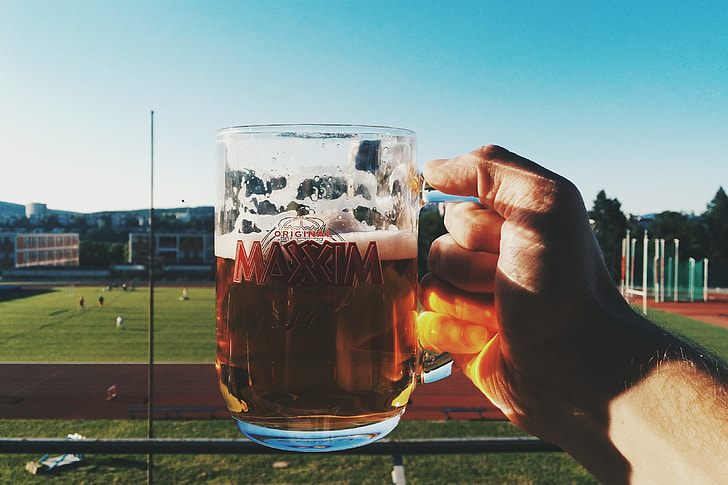Beer before liquor, never been sicker; liquor before beer, you’re in the clear.” We’ve all heard that saying at some point. It’s been passed around at parties, bars, and college dorms like gospel. But is there any truth to it? Can the order in which you drink beer and liquor really affect how you feel later? Or is it just another drinking myth meant to scare you into pacing yourself?
Let’s dig into what science says, what your body actually goes through when you drink, and what really causes those awful hangovers after a night out.
The Popular Myth: Where Did It Come From?
The rhyme is catchy and easy to remember, which probably explains why it stuck around. But just because something rhymes doesn’t make it true.
The idea likely comes from how people tend to mix their drinks. Someone might start their night with a few beers—something relatively light—and then later in the evening, they move on to shots or cocktails with much higher alcohol content. When they wake up feeling terrible the next morning, they blame the mix-up, not the actual culprit: drinking too much alcohol too quickly.
It’s important to recognize that this myth doesn’t come from scientific data—it comes from patterns in behavior and anecdotal experiences. And while it may seem like the drink order is responsible, it’s not that simple.
Mixing Alcohol: Does The Order Really Matter?
Let’s cut straight to the truth—no, the order doesn’t matter. What really matters is how much alcohol you consume and how fast you consume it. Whether you start with beer or hard liquor, your body absorbs alcohol the same way. The liver processes alcohol at a steady pace, usually about one standard drink per hour. If you drink more than your liver can handle, alcohol builds up in your bloodstream, and that’s when the problems start.
The confusion about the order likely comes from the way beer and liquor affect you differently. Beer is lower in alcohol by volume, so people tend to drink it more slowly. Liquor, on the other hand, hits harder and faster, especially if you’re doing shots or drinking cocktails with high alcohol content. So, if you start with beer and then move to liquor, you might end up drinking more than you intended, faster than your body can handle. That’s what makes you feel sick—not the order.
Why People Still Believe the Myth
So, why do so many people still believe the myth? The answer lies in how we perceive intoxication. When you start with beer, your buzz builds slowly. By the time you switch to liquor, your judgment might already be impaired, making it easier to go overboard. This sudden spike in alcohol intake can lead to a quicker and more intense intoxication—something your body wasn’t ready for.
It also works the other way around. Starting with hard liquor might get you drunk faster, and switching to beer might make you feel like you’re slowing down. But in reality, your total alcohol intake keeps increasing, and your body keeps struggling to keep up.
In both cases, the hangover that follows isn’t because of the order—it’s because you drank too much. Simple as that.
What Actually Causes Hangovers?
Hangovers are brutal. We’re talking headaches, nausea, dry mouth, fatigue, and brain fog. But what actually causes them?
Here are the real culprits:
1. Too Much Alcohol (Ethanol)
The more you drink, the higher your blood alcohol concentration (BAC). Your liver can only process a certain amount at a time. Everything beyond that accumulates in your system and starts affecting your brain, stomach, and kidneys.
2. Dehydration
Alcohol is a diuretic—it makes you pee more. This leads to dehydration, which causes headaches, dry mouth, and fatigue. If you’re not drinking enough water during a night out, you’ll definitely feel it the next morning.
3. Congeners
Congeners are chemical by-products formed during the fermentation and aging process of alcohol. Darker drinks like whiskey, bourbon, and red wine contain more congeners than lighter drinks like vodka and white wine. These compounds can intensify hangover symptoms.
4. Mixers and Carbonation
Sugary mixers and carbonated beverages (like soda or sparkling wine) can speed up alcohol absorption. Diet sodas may do it even faster. That means alcohol hits your system quicker and harder, increasing the chances of getting drunk too fast.
5. Empty Stomach
Drinking on an empty stomach is a recipe for disaster. Food slows the absorption of alcohol, giving your liver more time to process it. Without food, alcohol moves straight into your bloodstream, intensifying its effects.
Other Factors That Make Hangovers Worse
Besides mixing alcohol, other elements can also make hangovers more severe:
– Genetics
Some people are naturally more sensitive to alcohol due to their metabolism. If your body doesn’t break down alcohol efficiently, you’re more likely to feel its effects.
– Sleep Deprivation
Alcohol messes with your sleep cycle. Even if you fall asleep quickly after drinking, your quality of sleep takes a hit, making you feel extra groggy the next day.
– Smoking
If you smoke while drinking, your hangover could be worse. Studies suggest that nicotine combined with alcohol amplifies hangover symptoms.
– Pace of Drinking
Slamming shots or chugging drinks gives your body no time to process them. Drinking slowly and spacing out your drinks helps your liver keep up and reduces the risk of a nasty hangover.
Smart Drinking Tips to Avoid Feeling Awful
Now that we’ve cleared up the myths, here are some real-world tips to help you enjoy a night out without paying the price the next day:
-
Pace Yourself: Aim for one standard drink per hour.
-
Hydrate Often: Drink a glass of water between alcoholic drinks.
-
Eat Before and While Drinking: Food slows alcohol absorption.
-
Know Your Limits: Everyone’s tolerance is different.
-
Stick to Lighter Drinks: Clear alcohol like vodka or gin tends to cause milder hangovers.
-
Avoid Sugary or Fizzy Mixers: These can speed up alcohol absorption.
-
Don’t Mix Smoking and Drinking: It only makes things worse.
-
Get Proper Rest: Try to sleep enough and avoid alcohol close to bedtime.
The Truth About Mixing Drinks
The idea that the sequence of your drinks causes hangovers is a persistent myth, but the truth is much simpler. It’s not the order, it’s the amount and the speed at which you drink. Mixing different types of alcohol might confuse your sense of how much you’ve had, but your liver doesn’t care if it’s beer, wine, or tequila—it processes alcohol the same way.
So, the next time someone quotes that old rhyme at you, feel free to correct them. Enjoy your drinks, but do it responsibly. Your body—and your future self—will thank you.
And also read our latest blog : GPAT 2025: Today’s Result, Final Answer Key, Cutoff Dates & Counselling Guide



